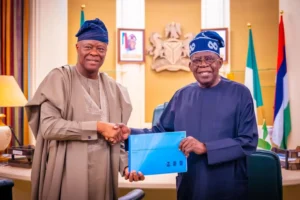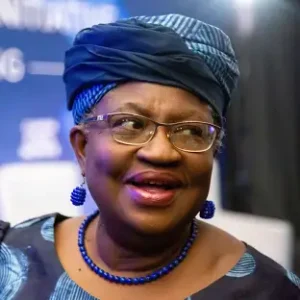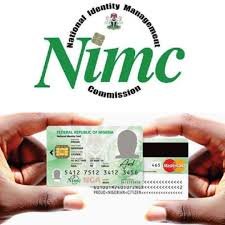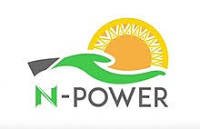As millions of Nigerians grapple with economic hardship and poverty, Minister Tinubu’s Minister of Finance, Wale Edun, announced cash transfer initiative aims to support 20 million poor Nigerians. However, past experiences with similar intervention funds and poverty alleviation programs have been marred by corruption, with funds meant for the vulnerable ending up in officials’ pockets. Will this new initiative break the cycle? Korede Abdullah writes.
Nigeria’s Poverty Crisis
Nigeria’s poverty crisis has taken a turn for the worse since President Bola Tinubu got to power in May 2023, despite the government’s efforts to lift millions out of poverty through the National Social Investment Programme Agency (NSIPA).
Rising inflation and insecurity have forced more Nigerians into the poverty trap, with rural and city slums dwellers being the most affected.


The country’s economic growth has not been able to translate into poverty reduction, with the poverty rate calculated using the international poverty line of 1.90 USD 2011 PPP per person per day remaining stagnant.
20million Poor Nigerians to Benefit from Tinubu’s Cash Transfer Initiative
The government has promised to implement various economic empowerment schemes, including support to small and medium enterprises, but the impact of these interventions has yet to be felt by the majority of Nigerians.
Some measures were introduced to address poverty reduction, but their effectiveness remains questionable.
The Nigerian government said early this month that it’s set to launch a groundbreaking cash transfer initiative, aimed at supporting 20 million of the country’s poorest citizens.
This program is said to be part of a broader strategy to allocate increased revenue from the 2024 fiscal year to social intervention programs, designed to improve living standards and address pressing societal needs.
Vulnerable Segments
According to President Bola Tinubu’s Minister of Finance, Wale Edun, 60% of the program will directly benefit the most vulnerable segments of the population.

The initiative, spearheaded by direct transfers, will reach 60% of the poorest individuals, with 20 million households currently being supported directly.
This number is expected to rise to 15 million households receiving direct payments from the government.
As Minister Edun emphasized, “That is how President Tinubu’s government is spending the money yielded from better oil production.”
The National Cash Transfer Office, under the Federal Ministry of Humanitarian Affairs and Poverty Alleviation, will facilitate the program, building on existing initiatives like the Household Uplifting Programme.
The FG’s Disburse N20,000 in Past, Transparency, Accountability Questions
The federal government’s plan to disburse N20,000 as a poverty alleviation program to Nigerians through the National Social Investment Programmes (NSIP) has raised concerns about transparency and accountability.
Given President Tinubu’s past criticism of similar programs, many analysts say it is essential to examine his administration’s approach to ensuring that these funds reach their intended beneficiaries.
Previous Controversies
President Tinubu had criticized the intervention program initiated by Ngozi Okonjo-Iweala, former Minister of Finance, under President Goodluck Jonathan. However, since taking office in 2023, Tinubu’s administration has also disbursed funds to “poor Nigerians” without clear evidence of beneficiaries.

President Goodluck Jonathan introduced a transformation agenda from 2011 to 2015 to tackle the country’s challenges.

After the petrol subsidy was removed in 2012, his administration launched the Subsidy Reinvestment and Empowerment Programme (SURE-P) to focus on critical infrastructure projects and social safety net programs that would directly benefit Nigerian citizens.
The program aimed to mitigate the impact of the fuel subsidy removal on the most vulnerable populations, and the funds saved were intended to be invested in projects that would improve the lives of Nigerians.
Bola Tinubu, as a key leader of the opposition party, All Progressives Congress (APC), spearheaded an intense campaign in 2015 against President Goodluck Jonathan, who was seeking re-election at the time.
This campaign was part of a broader effort by the opposition party to challenge Jonathan’s presidency and the ruling People’s Democratic Party (PDP).
Tinubu’s involvement in the campaign was likely influenced by his own political ambition, as he would later go on to run for president in 2023 and eventually won.
However, when President Tinubu took office, his intervention programmes have been criticized for being ineffective, despite the large amounts of money allocated.
For instance, the N20,000 disbursement to poor people has been questioned for its impact.
No ID Registration, no Social Welfare
Tinubu emphasized the importance of National Identity Card registration and comprehensive data coverage in providing social welfare measures for the underprivileged in Nigeria.

Speaking at the Forum of State Chairmen of the All Progressives Congress (APC) in Abuja, Tinubu stressed that without these measures, it’s nearly impossible for the government to effectively support those in need.
He assured Nigerians that his administration is working tirelessly to improve their living standards.
Tinubu urged local authorities to promote the acquisition of the National Identification Number (NIN) among citizens, highlighting its significance in strategic planning, structuring supportive interventions, and integrating beneficiaries into relief schemes.
Digital Identification for Development Needed
Nigeria is making strides in data coverage, but the country still grapples with social welfare integration due to insufficient data.
Inadequate Data
Despite progress, the World Bank notes that Nigeria’s social protection efforts are hindered by inadequate data, making it challenging to effectively support vulnerable populations.
To address this, the World Bank’s Digital Identification for Development (ID4D) project aims to register 148 million Nigerians as of June 2024, a crucial step towards improving social welfare integration. Yet the result has not been fruitful.
Achieving this target would significantly enhance the country’s ability to provide targeted support to those in need.
People Living in Poverty
However, Nigeria’s rapidly growing population and dynamic poverty landscape, which saw the number of people living in poverty increase from 57 million to 74 million between 2011 and 2016, underscore the urgency of addressing these data gaps.
Nigeria Still Struggling, Despite Rosy Promises
Nigeria, Africa’s largest economy, continues to struggle with providing opportunities for its citizens, despite President Tinubu’s efforts to address the issue.
Tinubu who emphasized the importance of National Identity Card registration and comprehensive data coverage in delivering social welfare measures to the underprivileged has not provided any alternative.
However, Africa Health Report (AHR), findings show that millions of Nigerians who have already registered for national identity cards have yet to benefit from these initiatives, especially the much publicized N20,000 for poor people.
This disparity highlights the significant challenges facing the country in ensuring that its economic growth translates into improved living standards for its population.
Poverty Rate
The poverty rate in Nigeria has reached a staggering 38.9% as of 2023, with over half of the population living below the poverty line.
This is a stark reminder of the need for effective solutions to address the country’s socio-economic challenges.
The World Bank has been working closely with Nigeria to address these issues, with a focus on human capital development, job creation, and economic transformation.
Initiatives such as the Better Education Service Delivery for All project and the Adolescent Girls Initiative for Learning and Empowerment have shown promising results, analysts say more needs to be done to tackle the scale of poverty in the country.
Calls for Transparency and Accountability
An APC chieftain, Olatunbosun Oyintiloye, once urged President Tinubu to closely monitor the spending of poverty alleviation funds to prevent misuse and ensure positive impacts on the less privileged
This call is particularly relevant considering the suspension of Nigeria’s Minister of Humanitarian Affairs and Poverty Alleviation, Dr. Betta Edu, over allegations of misappropriating roughly 585 million naira ($663,000) in grant money.
Before Edu’s suspension, the former NSIPA boss, Halima Shehu, had earlier been suspended on January 2 over alleged financial malfeasance.
Subsequently, the National N-POWER Program Manager, Dr Akindele Egbuwalo, replaced her in an acting capacity as NC/CEO pending the conclusion of the investigation..

Government’s Commitment to Transparency
President Tinubu who emphasizes the importance of transparency and accountability in his administration, has been criticized for not walking the talk.
In the 2024 budget, he prioritized ensuring value for money, greater transparency, and accountability, yet there is nothing to show for it as the effects of good governance has never been felt by Nigerians.
Considerations for Transparency and Accountability in Cash Transfer Initiative where 20million Poor Nigerians to Benefit:
Independent Oversight: Establishing an independent body to monitor fund disbursement and utilization.
Public Disclosure: Regularly publishing information on beneficiaries, fund allocation, and program impact.
Citizen Engagement: Encouraging citizen participation in program design, implementation, and evaluation.
Ultimately, the success of this program hinges on the government’s commitment to transparency and accountability.
By implementing robust monitoring mechanisms and engaging citizens, President Tinubu’s administration can ensure that these funds truly benefit Nigeria’s most vulnerable populations.
Analysts Call for Transparency
Nigerian analysts are calling for transparency and accountability in the government’s Cash Transfer Initiative, which aims to support 20 million poor Nigerians.
To ensure the program’s success, Alhaji Ibrahim Yusuf, a media practitioner, recommended establishing an independent oversight body.
According to Alhaji Yusuf, “An independent oversight body should be established to monitor fund disbursement and utilization, as well as regular public disclosure of information on beneficiaries, fund allocation, and program impact.”
Yusuf added that this would help prevent corruption and mismanagement of funds.
The media practitioner also recommended regularly publishing information on beneficiaries, fund allocation, and program impact so that there would be accentuality.
He also concluded, “Nigerian citizens engagement should be encouraged in the area of participation in program design, implementation, and evaluation instead of leaving it entirely in the hands of politicians and government bureaucrats.”
Analysts say that by implementing stringent measures, President Tinubu’s administration can guarantee that the funds reach Nigeria’s most vulnerable populations, unlike what was obtainable in the past.
The program’s effectiveness hinges on the government’s commitment to transparency and accountability, and analysts urge the administration to prioritize these principles.



